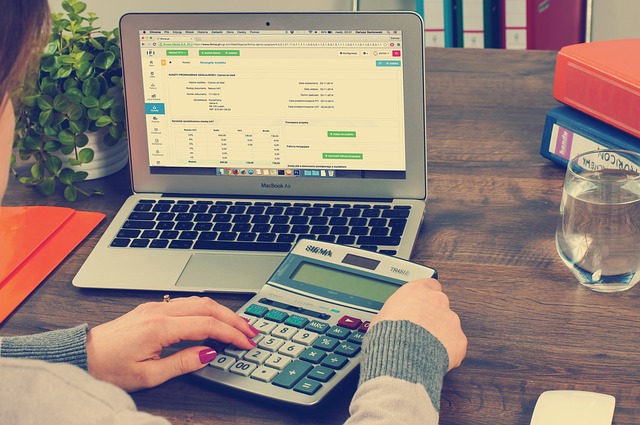Running a business as a sole trader in Australia is an exciting yet challenging endeavor. This comprehensive manual aims to equip you with the understanding of what it means to be a sole trader, the advantages and disadvantages of this business structure, and the crucial steps to get started.
Being a sole trader is akin to sailing your own ship. You are the captain, navigating through the vast sea of entrepreneurship, facing both calm waters and stormy skies. So, let’s set sail and explore this exciting journey of being a sole trader in Australia!
What is a Sole Trader?
A sole trader is an individual who runs a business independently. It is the most straightforward and prevalent business structure in Australia, offering simplicity and direct control. As a sole trader, you are the sole owner of the business and are personally accountable for all its financial aspects. This includes profits, debts, and legal obligations.
Distinct Features of a Sole Trader Business
Being a sole trader comes with a set of unique characteristics that distinguish it from other business structures. These include:
- Simplicity: The sole trader structure is simple to establish and manage, making it an attractive option for many small businesses.
- Complete Control: As a sole trader, you have total control over your business. You make all the decisions, giving you the freedom to steer your business in the direction you see fit.
- Personal Liability: Sole traders are personally liable for all business debts and obligations. This means your personal assets could be at risk if your business incurs debts it can’t repay.
- Tax Responsibility: Sole traders use their individual Tax File Number (TFN) to lodge income tax returns. The business income is reported as part of the individual’s personal income.
- Flexibility: This business structure offers unparalleled flexibility. You can set your own hours and choose the opportunities you wish to pursue.
Advantages and Disadvantages of Operating as a Sole Trader
Like any business structure, the sole trader model comes with its own set of advantages and disadvantages. Understanding these can help you make an informed decision about whether this is the right structure for your business.
Advantages
- Ease of Setup: Setting up a sole trader business is relatively easy and inexpensive, which can be especially beneficial in the early stages of a business.
- Full Autonomy: Sole traders have complete control over all aspects of their business. This can be particularly appealing to those who value independence and decision-making authority.
- Less Bureaucracy: Compared to other business structures, sole traders face fewer administrative burdens and regulatory hoops.
- Tax Deductions: Sole traders can claim tax deductions on business expenses, potentially reducing their overall tax liability.
Disadvantages
- Unlimited Liability: The most significant disadvantage of being a sole trader is the unlimited personal liability. If your business fails or incurs substantial debt, your personal assets could be at risk.
- Limited Funding Options: Sole traders may find it challenging to raise capital, as investors generally prefer to invest in businesses with more structured entities, like a company.
- Potential for Isolation: As a sole trader, you are responsible for all aspects of your business, which can sometimes feel isolating.
How to Register as a Sole Trader in Australia?
Setting up as a sole trader involves a few key steps:
- Decide on a Business Name: If you want to operate under a business name other than your personal name, you’ll need to register that business name with the Australian Securities and Investments Commission (ASIC).
- Obtain an Australian Business Number (ABN): This is a unique 11-digit number that identifies your business to the government and community.
- Register for Goods and Services Tax (GST): If your annual business turnover exceeds $75,000, you need to register for GST.
How Do I Pay Myself as a Sole Trader?
As a sole trader, your business’s profit is your income. You can ‘pay’ yourself by drawing funds from the business. This is sometimes referred to as ‘drawings’ and are not considered wages for tax purposes.
Tax Obligations of a Sole Trader
As a sole trader, you are required to pay tax on your business earnings as part of your personal income. It’s vital to keep accurate financial records and declare all business income on your personal tax return.
Record-keeping and Financial Management
Proper record-keeping and sound financial management are crucial aspects of running a successful sole trader business. You should maintain accurate financial records, separate personal and business finances, and use accounting software to streamline financial management.
When to Seek Professional Help?
As a sole trader, you might find it beneficial to seek professional advice for complex financial decisions, legal concerns, and tax matters. Accountants, financial advisors, and lawyers can provide valuable guidance and support.
Conclusion
Being a sole trader in Australia can be a rewarding venture, providing you with complete control over your business. However, it also comes with certain challenges, including unlimited personal liability for business debts. Understanding the ins and outs of this business structure can help you navigate these challenges and set yourself up for success.
Whether you’re considering starting a sole trader business or are already one, this guide provides a comprehensive overview of what it means to be a sole trader, along with practical tips for managing your business effectively. Happy sailing!
If you need assistance, consult with Pro Plus Bookkeeping to determine the most suitable system for your specific needs.



